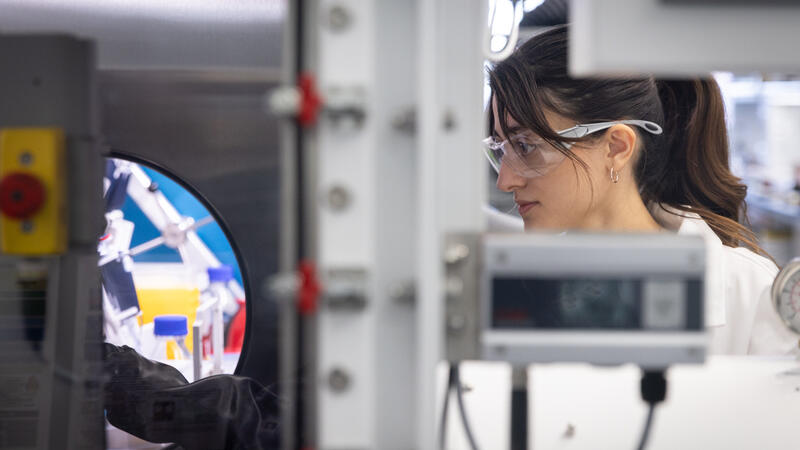News
Autonomous lab accelerates discoveries to harness power of microbes
The prospect of converting large tracts of the Midwest’s marginal farming land to perennial biofuel crops carries with it some key unknowns, including how such a change could affect the balance of water between rainfall inputs, evaporation losses, and movement of soil water to the groundwater. In humid climates such as the U.S.
Scientists at the University of Wisconsin–Madison and Michigan State University (MSU) report today that emissions of the potent greenhouse gas nitrous oxide (N2O) can be reduced significantly by replacing annual biofuels feedstocks, such as corn, with second-generation, perennial feedstocks such as switchgrass.
Yeast, the same microbe that gives us bread, beer, and wine, can also convert sugar molecules found in plants into ethanol.
But just as toddlers can be picky eaters, so can yeast: it only eats sugar if it has exactly six carbon molecules. One molecule less and consuming it is out of the question.
Fostering sustainability is no game, but having a little fun helps high school students understand the complex concepts — like multivariable regression (i.e., lots of causes can impact lots of outcomes) — that go into biofuels production.
On the outskirts of farming fields you’ll often see little strips of unkempt land. These agricultural edges might have once been sown with corn or soybeans, but are now considered too hilly and so have become littered with fallen trees. Unreachable by modern farming equipment, these hard-to-reach places are usually left uncultivated each season.
Scientists today demonstrated the potential for softwoods to process more easily into pulp and paper if engineered to incorporate a key feature of hardwoods. The finding, published in this week’s Proceedings of the National Academy of Sciences, could improve the economics of the pulp, paper and biofuels industries and reduce those industries’ environmental impact.
Traversing the landscape of the Upper Midwest, there is a high likelihood you’ll see corn fields. Lots and lots of corn fields. Here, leftover stalks are most often plowed under the earth in late autumn, where they can replenish the ground, becoming soil organic matter.
David Duncan loves to think about dirt, and a quick glance at his family tree could lead one to believe he comes by it naturally. His grandfather was an agricultural extension agent and his handful of uncles includes two agronomists and an expert on fungi.
Traversing the landscape of the Upper Midwest, there is a high likelihood you’ll see corn fields. Lots and lots of corn fields. Here, leftover stalks are most often plowed under the earth in late autumn, where they can replenish the ground, becoming soil organic matter.
For many college students, summer provides a chance to test-drive future career paths. When Gina Lewin took advantage of such an opportunity, her test drive hit the jackpot.





